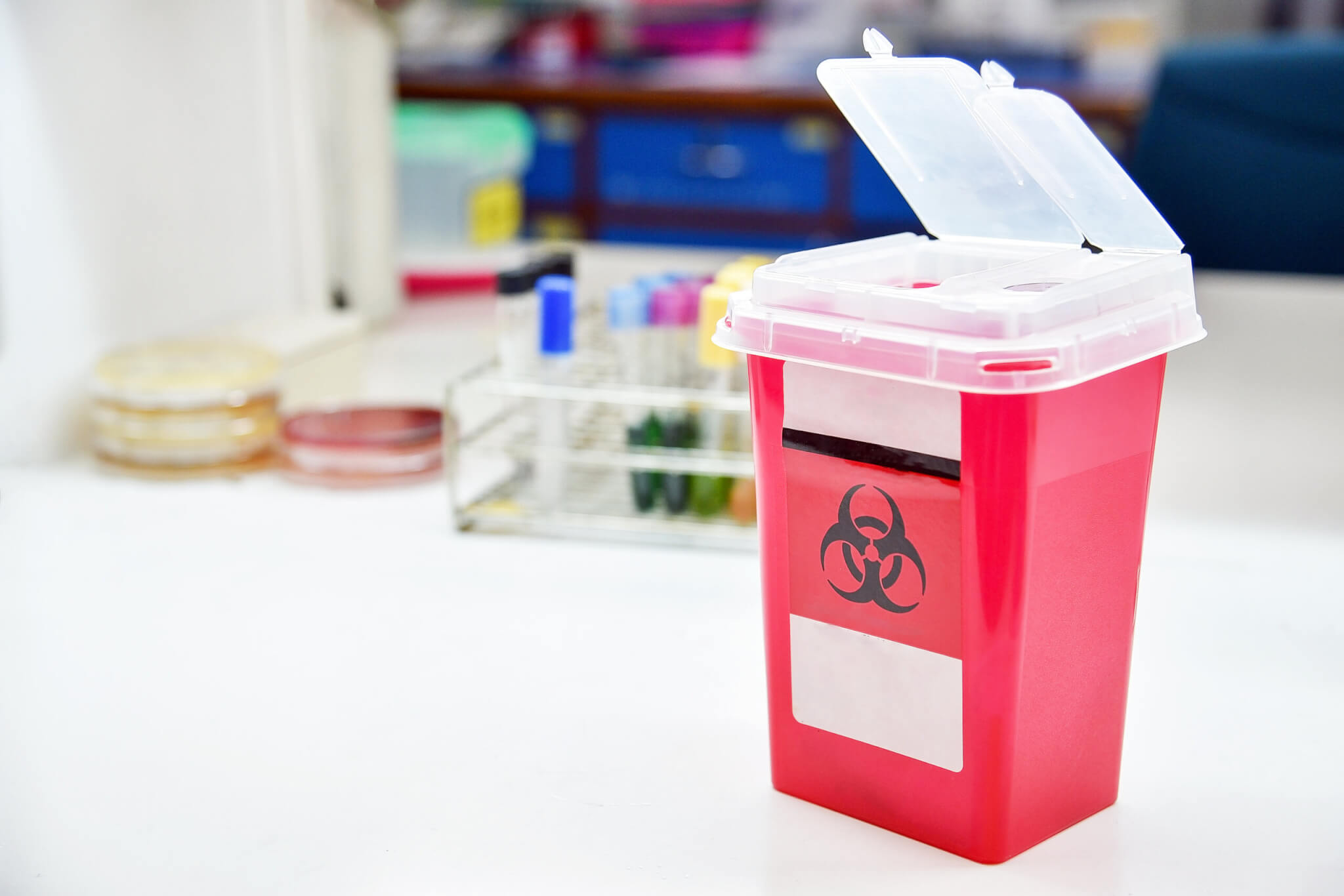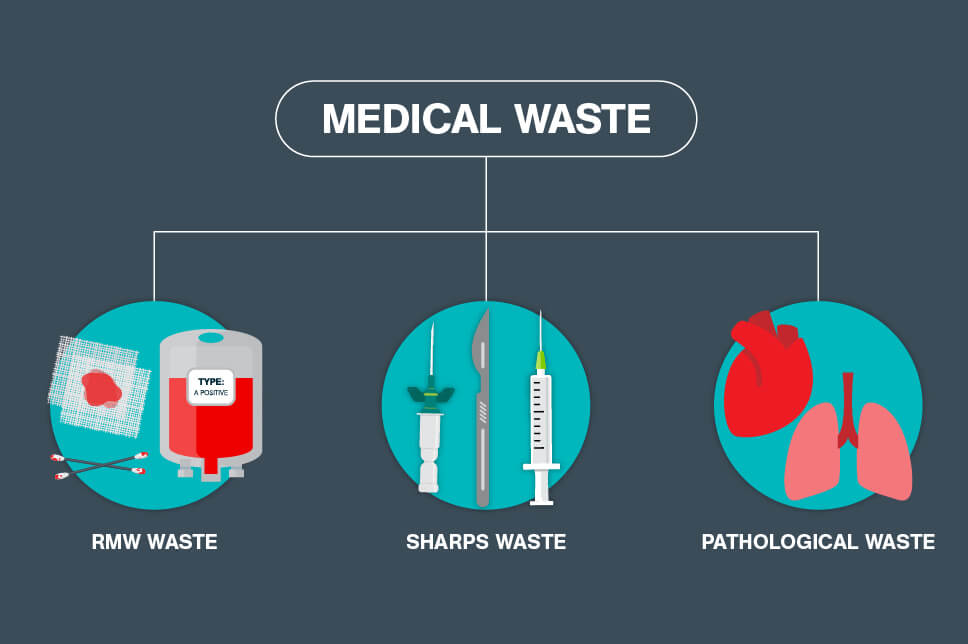Reliable Medical Waste Disposal Services: Partnering for a Cleaner Setting
Reliable Medical Waste Disposal Services: Partnering for a Cleaner Setting
Blog Article
Liable Solutions: Understanding Medical Garbage Disposal Services
In the world of medical care, the correct disposal of medical waste is a crucial aspect that demands careful factor to consider. The importance of managing medical waste responsibly goes beyond mere conformity with regulations; it directly impacts public health and ecological safety and security. As health care facilities produce various kinds of waste that call for customized handling, recognizing the subtleties of clinical garbage disposal services is paramount. By checking out the intricacies of this crucial process, we can drop light on the very best practices, advantages of professional solutions, and lasting solutions readily available.
Importance of Appropriate Medical Waste Disposal
Correct clinical waste disposal is vital in keeping a sanitary and risk-free environment within healthcare centers. In medical care settings, numerous kinds of waste are produced daily, consisting of contagious materials, sharps, ran out drugs, and chemical materials. If not effectively handled, these wastes can present major risks to both health care workers and the public. Inappropriate disposal can cause the spread of infections, injuries from sharps, contamination of water sources, and injury to the atmosphere.

Sorts Of Medical Waste
Within health care centers, a varied selection of waste products identified as clinical waste is generated, each calling for specific handling and disposal methods. Medical waste can be categorized into a number of kinds based upon its features and prospective threats. Transmittable waste, such as utilized swabs, needles, and societies, postures a significant risk of spreading out infections and must be thoroughly taken care of to avoid any possible injury. Dangerous waste includes chemicals, pharmaceuticals, and certain materials that may be responsive or harmful. These products require customized disposal methods to lessen ecological impact and make certain safety. Pathological waste, which includes tissues, organs, and body parts, demands correct disposal to appreciate the self-respect of the deceased and prevent any biohazards. Finally, pharmaceutical waste, like expired drugs and chemotherapy drugs, need to be gotten rid of correctly to avoid misuse or ecological contamination. Comprehending the various types of clinical waste is vital for medical care facilities to execute reliable waste administration approaches and shield public health and wellness and the atmosphere (Medical Waste Disposal Services).
Rules and Compliance
Healthcare facilities have to follow stringent policies regarding the handling and disposal of clinical waste to make certain conformity with legal requirements and safeguard public health. These laws are implemented to stop the spread of infections, secure the setting, and keep the safety and security of medical care employees and the general public. Different regulatory bodies, such as the Epa (EPA), the Occupational Safety And Security and Health Administration (OSHA), and the Department of Transport (DOT), have details standards that health care facilities must adhere to.
To comply with these laws, healthcare centers need to appropriately set apart, shop, transport, and deal with various kinds of clinical waste. This includes sharps waste, transmittable waste, contaminated materials, and pharmaceutical waste, each requiring particular managing treatments. Facilities must also preserve accurate documents of waste generation and disposal to show conformity throughout inspections.
Non-compliance with medical waste regulations can cause severe charges, penalties, and damage to the center's track record. As a result, it is crucial for Homepage medical care centers to remain informed regarding the most recent laws and execute durable compliance measures to protect public wellness and the setting.
Advantages of Specialist Disposal Solutions
Engaging expert medical waste disposal solutions supplies health care centers a reliable and reliable remedy for handling hazardous materials. These services use experienced experts that are well-versed in handling different types of medical waste, making certain appropriate partition, transport, packaging, and disposal. Medical Waste Disposal Services.
Moreover, expert disposal solutions utilize state-of-the-art tools and adhere to market best techniques to decrease environmental influence and lower the danger of contamination. This not only advertises a much safer workplace for health care staff but likewise adds to total public health and wellness and security. In addition, outsourcing clinical waste disposal can cause cost financial savings over time by getting rid of the demand for internal administration and disposal systems.
Lasting Practices in Medical Care

One trick lasting technique in health care is waste reduction. By applying methods to minimize unneeded product packaging, single-use products, Web Site and total waste generation, medical care facilities can dramatically reduce the quantity of waste sent out to garbage dumps or incineration. In addition, recycling programs for products like paper, glass, and plastic can further minimize the environmental impact of healthcare operations.

Conclusion
To conclude, proper clinical garbage disposal is critical in maintaining a risk-free and healthy and balanced atmosphere for both healthcare employees and the public. Recognizing the different kinds of clinical waste, adhering to laws and conformity requirements, and utilizing specialist disposal services are vital actions in responsible waste monitoring. By adopting sustainable methods in healthcare centers, we can lower environmental influence and ensure the well-being of all individuals associated with the healthcare sector.
As medical care centers create numerous types of waste that call for customized handling, understanding the subtleties of medical waste disposal services is critical.Within health care facilities, a diverse variety of waste products classified as medical waste is produced, each needing certain handling and disposal approaches. Comprehending the numerous kinds of medical waste is essential for healthcare facilities to apply reliable waste management methods and protect public health and wellness and the environment.
By carrying out techniques to minimize unneeded packaging, single-use products, and total waste generation, healthcare facilities can significantly decrease the quantity of waste sent out to garbage dumps or incineration. Understanding the different types of medical waste, following laws and compliance requirements, and making use of expert disposal Home Page services are important actions in accountable waste monitoring.
Report this page